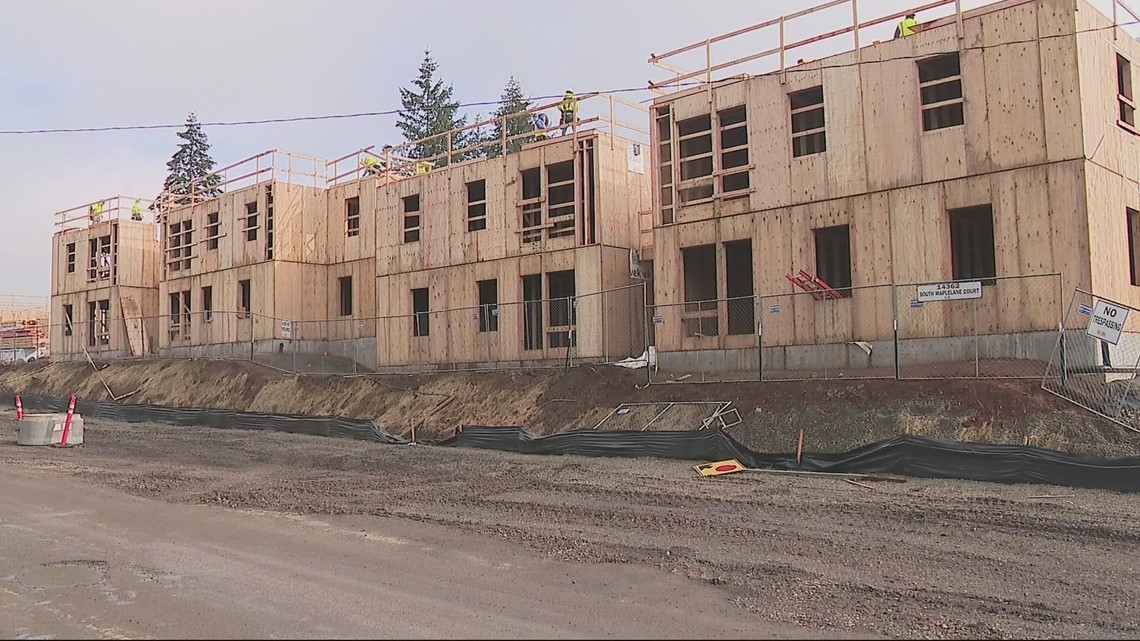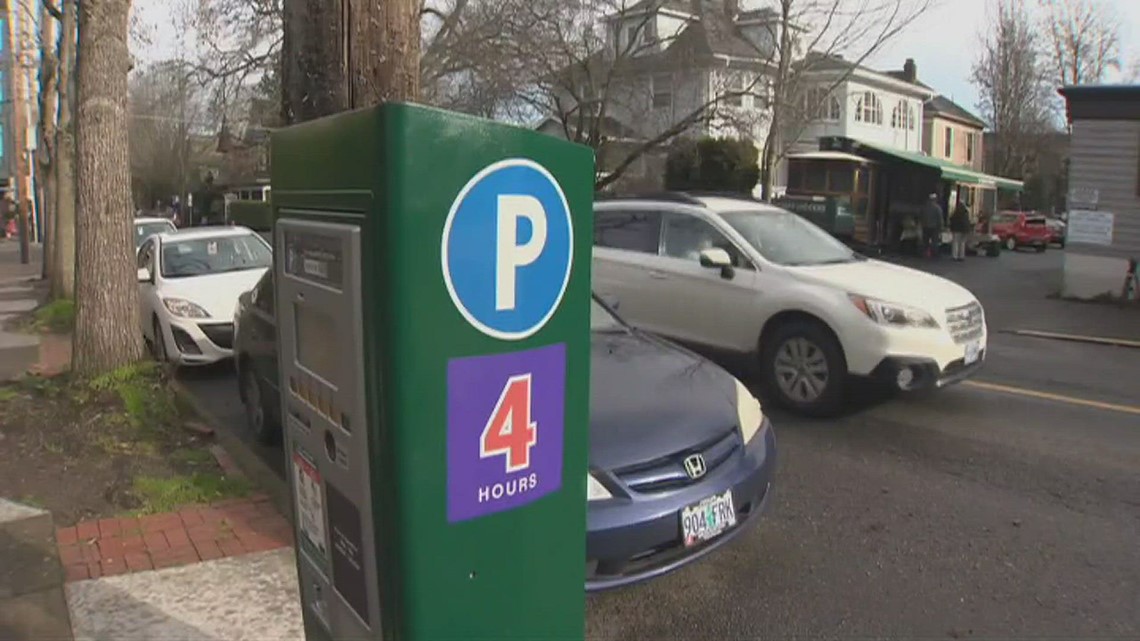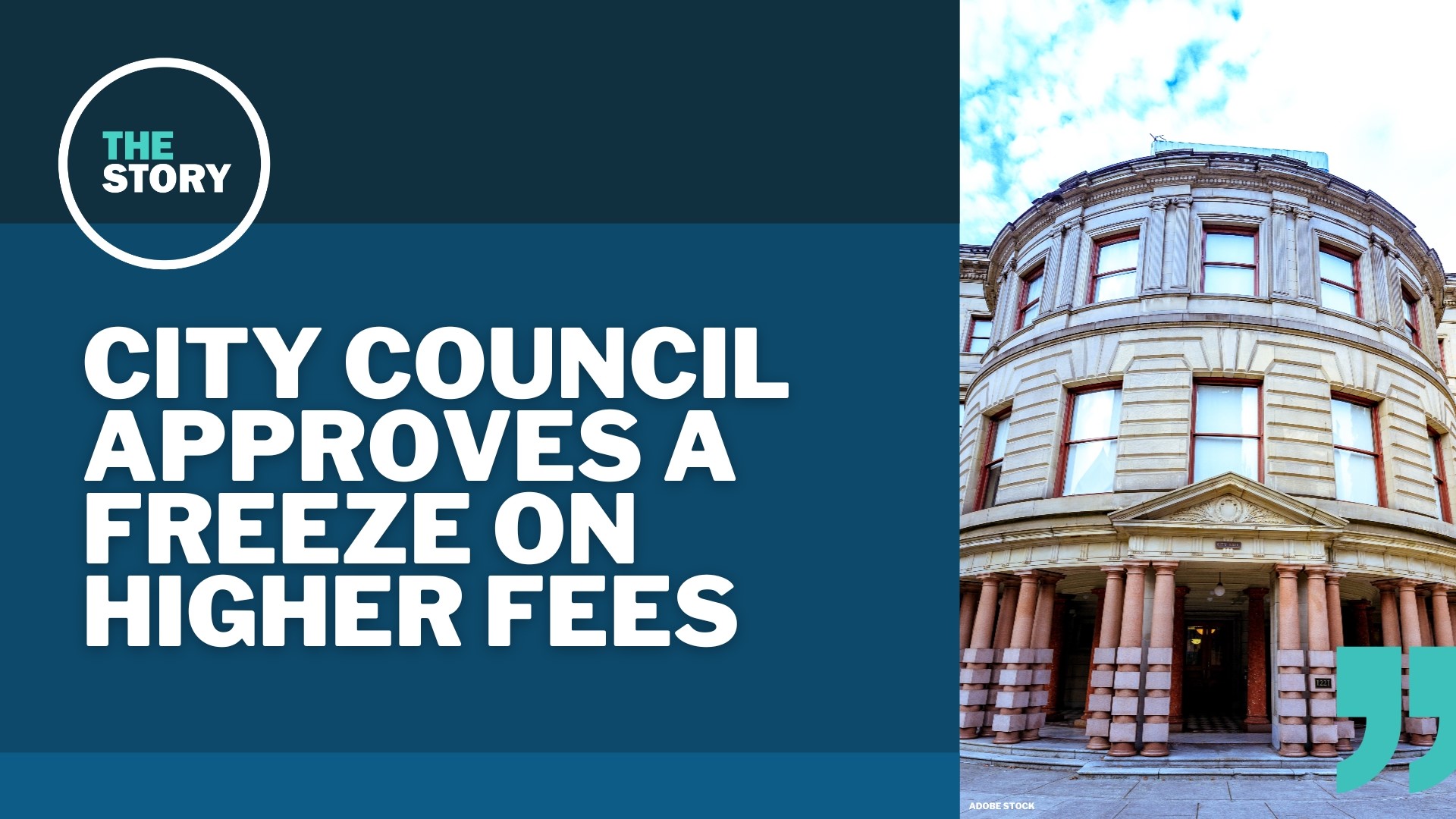PORTLAND, Ore. — The Portland City Council adopted a $7.1 billion budget for the 2023-24 fiscal year at its meeting Wednesday following a lengthy back-and-forth about how to tackle budget crunches at multiple city bureaus.
Mayor Ted Wheeler proposed amendments halting multiple utility and fee increases, including a planned 40-cent increase in parking meter rates, citing affordability concerns that he said are pushing people out of Portland. Holding down parking fees is especially important to restore traffic downtown, he argued.
"Studies show that when people come to downtown Portland, they are twice as likely to have a favorable impression of the city of Portland than prior to coming to downtown Portland," he said. "So it's really important, at this moment in our history, for us not to send mixed signals."
Commissioner Carmen Rubio added an amendment to freeze system development charges at current levels for one year, which she said would help spur housing production.
"Interest rates are the biggest barrier to housing production, but we don't control that, so I'm looking at the levers that we can pull," she said.


Rubio said her amendments were also aimed at consolidating operations in preparation for a city manager to take over when Portland transitions to a new form of government in 2025.
Wheeler's parking fee proposal drew immediate disagreement from Commissioner Mingus Mapps, who oversees the Portland Bureau of Transportation.
Mapps argued that the council had already voted to put the 40 cent increase plan in place last year and abandoning that plan would be "accelerating the deterioration of PBOT." He also proposed a smaller 20 cent increase as an alternative to "try to stem the harm that we are doing here."
Both proposals drew pushback in the public comment period, with multiple people testifying that the adjustments were being implemented too abruptly and would force significant cutbacks at the Portland Bureau of Transportation.
"This is not a cut," Wheeler argued after the public testimony. "This is holding the line on proposed increases. The reason that services would be reduced as a result of this increase not going through is because the cost structure is growing at a very rapid rate."


Mapps said the increased meter fees ultimately wouldn't prevent cuts at PBOT due to the bureau's overall financial situation, saying that some of the cuts are "basically baked in," but he advocated for his alternative plan as a way to save some of the jobs.
"Something which I think is important for everyone on this council and the people of Portland to know is that PBOT is on life support," he said. "No matter what happens right now, until we figure out a new fiscal model for this, this is a bureau which is in decline."
When asked by Mapps, PBOT business services group director Jeramy Patton said that even with the 40-cent increase in place, the bureau would face cuts of 150 to 300 staff over the next two years. With no additional parking revenue, the total would climb by another 50 to 100 staff, he said.
Mapps ultimately won out with his 20-cent increase proposal in place of Wheeler's freeze idea, but the other proposed cuts went through despite some objections from Mapps and Commissioner Rene Gonzalez. The overall budget passed on a 4-1 vote, with Mapps voting no due to the cuts.
"None of these things that we've implemented here are going to convince a single Portlander to stay in town," he said, "however the city that we all live in and will hand down to our children will be in much worse shape as a product of the budget that we pass today."

